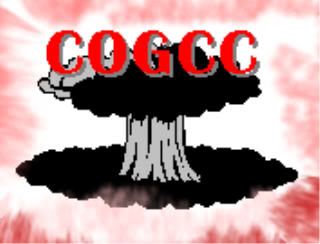
A 43-kiloton nuclear bomb was exploded in 1969 about 11 miles west of Rifle in an area called Rulison, not far from I-70. The US Department of Energy was experimenting with a new method to release natural gas from the tight rock formations.
This “Rulison Project” experiment had mixed results. Yes, the blast freed up gas reserves–but they were too radioactive to be used safely.
Because the DOE was unsure how far the underground contamination by radiation had spread, DOE banned all drilling below 6,500 feet and required notification of any surface activity within a three-mile radius of the bomb site.
Fast forward to present day. The Colorado Oil and Gas Conservation Commission, under fire for being too lenient towards energy companies, will be holding a public meeting next month to discuss requests to drill within one half mile of the nuclear blast in Rulison.As noted in an article by Mike McKibbin from the Grand Junction Daily Sentinel:
The Colorado Oil and Gas Conservation Commission continued a request Monday from Noble Energy for 40-acre surface spacing and 10-acre down hole, or underground, spacing that could see a well drilled within three-quarters of a mile of the blast site, said Commission Director Brian Macke….
…(A nearby resident,) Wesley Kent said Noble’s request is an example of the “absurdity of power in the Oil and Gas Commission.”
“This is something that really should be left up to the DOE,” he said. “The commission doesn’t have any expertise over nuclear sites.”
Here is how HB 1341 is related to this Rulison nuclear bomb:
Just passed in the House and sent on the Colorado Senate, HB 1341 would increase the size of the COGCC from seven to nine members with its membership to include three people with undergraduate degrees in petroleum engineering or petroleum geology, representatives of local government and agriculture, a person with expertise in environmental or wildlife protection, an expert in soil conservation, and the executive directors of the state’s departments of natural resources and public health and environment.
Currently, five of the COGCC board’s seven members work in the energy extraction industry.
With the current board of COGCC poised to possibly approve drilling in the nuclear blast area, looks like the HB 1341 measure should have included an atomic scientist.







Comments are closed.